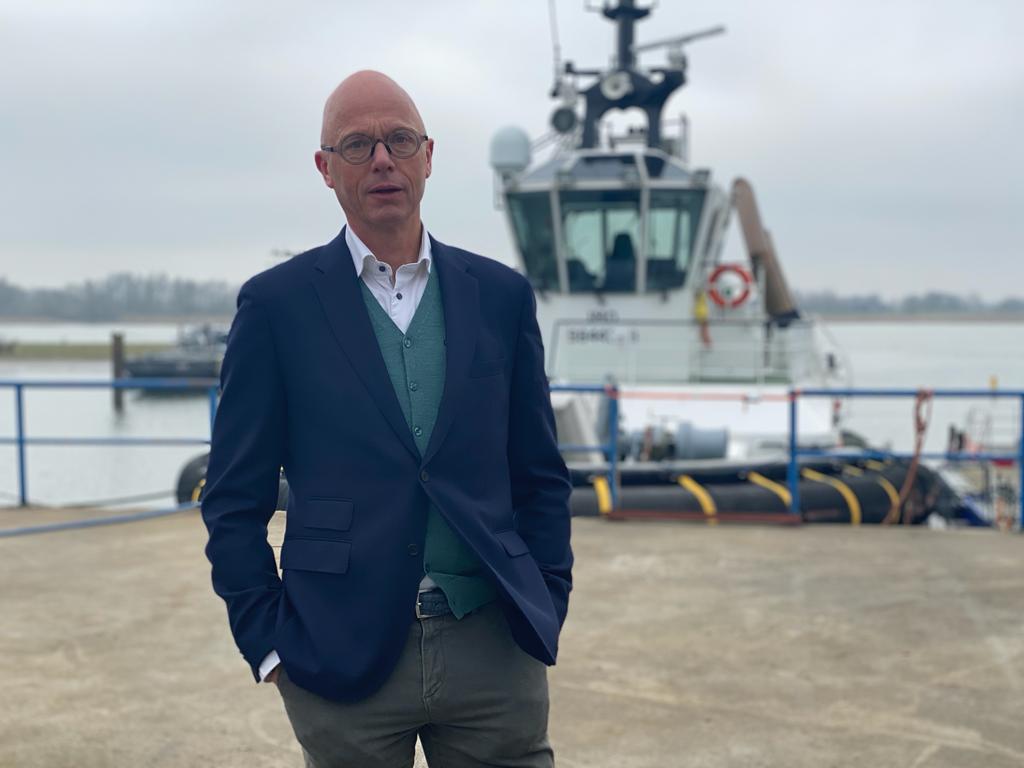As a family business, Damen stands for such qualities as craftsmanship, entrepreneurship and stewardship. In the previous century, Damen revolutionised with standardisation and series production. More than 90 years and 6,000 ships later, those cornerstones remain unchanged. In fact, their importance is only increasing, with the need for more sustainability and digitalisation. The company has as its goal to combine their tried and trusted standardisation with the innovations of digitalisation and become the world's most sustainable shipbuilder. And the One Maritime Data Standard fits in perfectly with that.
Damen Shipyards is one of the initiators of the One Maritime Data Standard, so we asked Jacob Biemond: ‘What’s in it for you?’
‘I don’t think the added value lies specifically with Damen Shipyards. The real added value is for the Dutch maritime industry that we’re aiming to put firmly on the map. And the OMDS is above all of particularly great value to our suppliers. It’s wonderful for them if they only have to make their data available just once. It’s nice for Damen Shipyards too, if a supplier has to do that only once. It all goes much faster than when data has to be delivered in a different format every time. It is especially interesting to have all that data fully available. Possibly more relevant for us as a shipbuilding concern than for other parties.’
Jacob adds, as an additional important reason, that Damen Shipyards exports a large variety of items annually. Data accuracy is many times more important in such activities than whenever you personally incorporate the data in a ship. And he emphasises the importance of standardisation and digitalisation in the maritime sector and making use of available technology in order to work as efficiently as possible with matters that are less than distinctive in themselves.
‘The OMDS is definitely visible among the select group involved in data and data exchange at Damen. Across the breadth, it’s still too limited and that has to do with the fact that we are currently involved with carrying out an intensive update of our own operating systems. That applies to both a ‘parts data tool’ and our ERP and engineering systems. When that is fully completed, I’m convinced that the OMDS will really take off at Damen Shipyards.’

According to Jacob, it’s vital to operate a really active communication policy on the implementation of the OMDS, both internally and externally. ‘We will take the biggest steps internally when the ERP system goes live. I expect that to happen in the course of 2023 when the implementation has already taken place at the first divisions. Gorinchem will certainly be ready then.’
‘We are already asking our suppliers to make information available in a certain desirable form. The OMDS will elaborate on that. At present, that’s also mentioned in our purchasing conditions. In the future, the One Maritime Data Standard will become the basis.’
The other Damen Shipyards operating companies can naturally connect to OMDS applications through the central data management in a single system. ‘We will also be asking international suppliers to connect, certainly where it concerns interesting packages, in particular those with a great many article numbers.’
‘I don’t know. Our industry is different to the installation sector. They have an unusually large number of exchangeable components which you can buy from any supplier. For us, it’s more a data exchange platform than anything else and it will mainly reduce the costs of manufacturing in the Netherlands. It results in a slighter higher margin or a better price.
The entire shipbuilding industry has been through difficult times and it would be great if companies could pull together precisely in that area. When you reach a certain critical mass, you can really achieve it.
We hope to accelerate in the course of next year. I don’t dare to put a figure on it, but there have been many switches in position. New insights can lead to an acceleration. In any case, it’s clear that the OMDS has an effect on all relevant business processes and on all interaction with suppliers.’
‘We have to promote the OMDS even more, embrace it together and publicise it more explicitly. I’m looking forward to intensifying the collaboration with NMT, particularly in the context of the Scheepsbouw 4.0 Commission. It would be fantastic if we were to embrace and publicise the OMDS more, together with the branch organisation.’